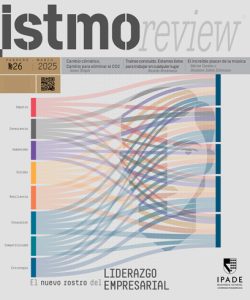«I believe in the power of markets. In the short term, we need to adapt so that people can prosper economically despite the changing climate».
The sustainability discourse has been increasingly permeating many aspects of both business and societal discussions. It is a trend that businesses cannot neglect at any level, considering that its prominence will only increase in the future. Having that in mind, we had a conversation with Professor Todd Moss, a recognized expert in sustainability and sustainable enterprises. Todd explained to us how the sustainability discourse has evolved over one hundred years and how he considers it will soon be making its way to the realities of businesses of all sizes and contexts, emphasizing the types of mechanisms that will make it a positive trend for everyone in society.
Todd has devoted plenty of his intellectual activity to exploring the intersections of entrepreneurship, social responsibility, and sustainability. He serves as Associate Professor of Entrepreneurship and Emerging Enterprises at the Whitman School of Management at Syracuse University, and he has taught various courses around the topics of strategic management and entrepreneurship. Todd also serves as Faculty Director at the Sustainable Enterprise Partnership, where he helps students to create innovative solutions to shape the future through sustainable enterprises, focusing on real-world problems and on the desired practices that will promote socially responsible and environmentally friendly enterprises.
Te Recomendamos este video del FORO ISTMO 2021 Recuperar – reiniciar – reimaginar, con el tema: “Los secretos del éxito de las ventas online en la nueva era”. Carlo Ledezma, speaker y consultor
Context as opportunity
According to Todd Moss, one thing that should be clear to us by now is that a defining trait of entrepreneurs is their ability to find opportunities where others think there are none. So when we consider the constant changes in our contexts and their potential to hinder the achievement of a more sustainable society, this trait should come to the forefront of our discussion. Todd claims that there are reasonable grounds to believe that sustainability is not an obstacle to other kinds of goals, and, by the same token, context does not have to constitute a limit to achieve sustainability. In other words, sustainability should always be interpreted around the semantics of opportunity. «While companies may need to adjust their time horizons to take full advantage of the opportunities in the long term,» claimed Todd, «the opportunities are there.» Companies want to have a competitive advantage, and Todd claims that sustainability will increasingly be a part of that.
a defining trait
of entrepreneurs
is their ability
to find opportunities
where others think
there are none.
The evolution of the sustainability discourse
The sustainability discourse has evolved over the course of several decades. As Todd reminded us, in the American context, almost one hundred years ago, the discourse around sustainability focused mainly on national parks and conservation. Then, some decades later, a certain kind of crisis started to unfold with a range of phenomena including pollution, oil spills, and the extinction of animal species. We started seeing wildlife perishing because of things we were doing as humans. In the U.S., that led to the creation of new institutions like the United States Environmental Protection Agency (EPA) in the 1970s, new corporate roles like Vice President of Environmental Health and Safety, new professions like Environmental Engineers, new movements like Green Peace, and new approaches embodied in slogans like «Reduce, Reuse, Recycle.» This wave of initiatives was further fueled by the emergence of mass media, including television, so people were now able to see images of what was happening instead of just reading or hearing about it. At this point we witnessed the start of the global warming conversation.
Some years later, people also started talking about the tremendous practical value of ecosystems. For water purification, for example, we realized that nature could do it for us if we focused on protecting the ecosystems. And more recently, the discourse has shifted towards renewable energy, with initiatives like solar power and electric vehicles. In addition, we have more recently started to see initiatives focusing on an integrated approach to all these issues, like the set of socially responsible investing standards called ESG (Environmental, Social, and Governance criteria).
While it is true that, strictly speaking, this description of the sustainability discourse applies only to its evolution in the United States, Todd claims that such an evolution can naturally take place in developing economies, and with a considerable advantage, as it can be compressed to leapfrog certain stages and include only the most productive parts of it. Thus, all that process that the U.S. went through over a hundred years can be shortened — and is actually being shortened — into a smoother and more agile progression among developing economies.
Síguenos en Google ¿Noticias y descubre contenidos relevantes? para la persona de la Alta Dirección.
Can the sustainability discourse be adapted to the realities and sizes of different companies?
The reality in Mexico and many other emerging economies is that more than 95% of their businesses are small and medium-sized companies. Still, sustainable initiatives are not typically associated with that category of business. Todd responds to this fact by referring to the powerful impact and reach large firms can have at various levels: «Large firms have a lot of resources and a large impact, and when they make a change, it affects a lot of people, a lot of areas.» And this factor needs to be considered together with the fact that there is a growing market of customers that value sustainability, with marketing literature now talking about a new category of customers labeled as the LOHAS customers, which stands for Lifestyles of Health and Sustainability customers. About 15-30% of customers are now falling into this LOHAS group, and they are characterized by their awareness of and care for sustainability issues. They are very sustainability-conscious, strongly preferring products and services that promote sustainability in one way or another. This trend will increasingly bring pressure on businesses to adopt sustainable practices, and large firms have already been seeing this reality happening. Given this context, Todd claims that the way the reality of small and medium enterprises will be integrated into this sustainability movement is that large companies are going to start requiring sustainability standards from their smaller suppliers. This way, sustainability practices are going to work their way down in the supply chain because customers are going to start requiring it. And government entities may soon begin to make it a condition of business operation as well.
On the role of business and government in ensuring sustainability in the future
When it comes to sustainability talk, there is typically a lot of pie in the sky, claimed Todd. And yet, some fundamental challenges have not been overcome in over 25 years of organized efforts to address the issue, including the question of what incentives can there be for large growing economies like China or India to reduce their emissions when their populations want to rise out of poverty. «The big question becomes: How can we transition to a more sustainable society without destroying the global economy?» And the answer, he says, lies in market-based mechanisms because, without incentives for various companies to cooperate, a transition is unlikely to happen. «That lasting change will not happen unless there is a strong market-driven component.»
Te recomendamos leer: La era de los autos electricos ya empezo
On the government side, Todd believes there needs to be a measured approach when it comes to addressing climate change because there has been a kind of “Climate Telephone Game” being played, where scientists say something, and then certain groups take that information and put it in a research report, and then that research report is condensed into an executive summary, and then that executive summary is taken by politicians and the media into soundbites that are one or two sentences long, and in that transition, the message gets changed or warped. The shift needs to be more moderate than is typically portrayed in political discussions. There is no consensus yet as there was, for example, with the issue around the hole in the ozone layer, where everyone was able to come together and make significant changes. But in this broader issue of sustainability, the challenge for most economies is to become more sustainable while ensuring that they can rise out of poverty, and Todd believes that, although the government will surely play a role in achieving that, the most effective way to get results will be based on a market approach, rather than a government approach. «I believe in the power of markets,» says Todd, «In the short term, we need to adapt so that people can prosper economically despite the changing climate.» And thus, the key questions entrepreneurs need to answer are whether we can use sustainability to reduce costs and find great sustainable products that perform just as well as non-sustainable products.
Conecta con nosotros, Ahora en TELEGRAM: https://t.me/ISTMOconnection






